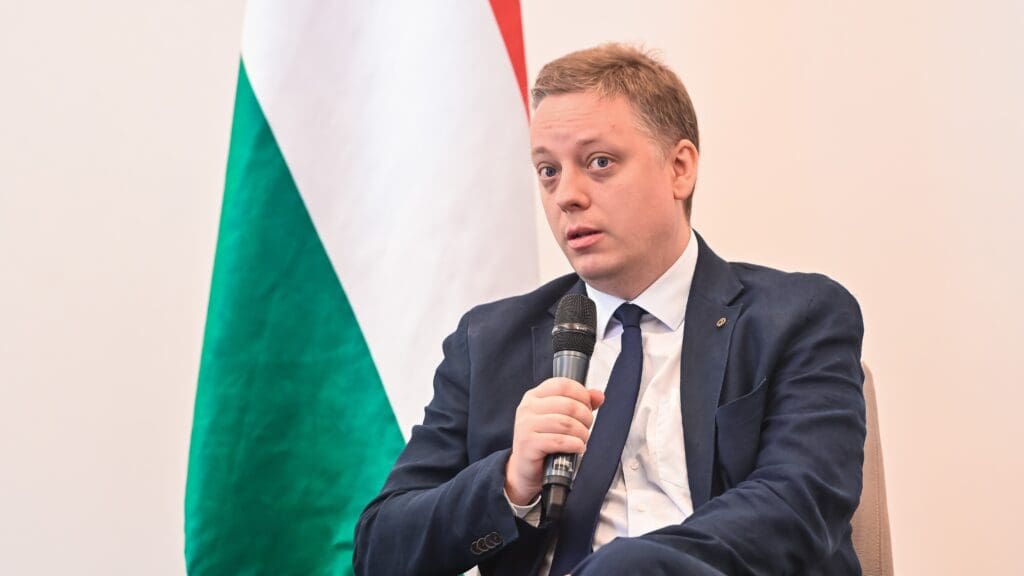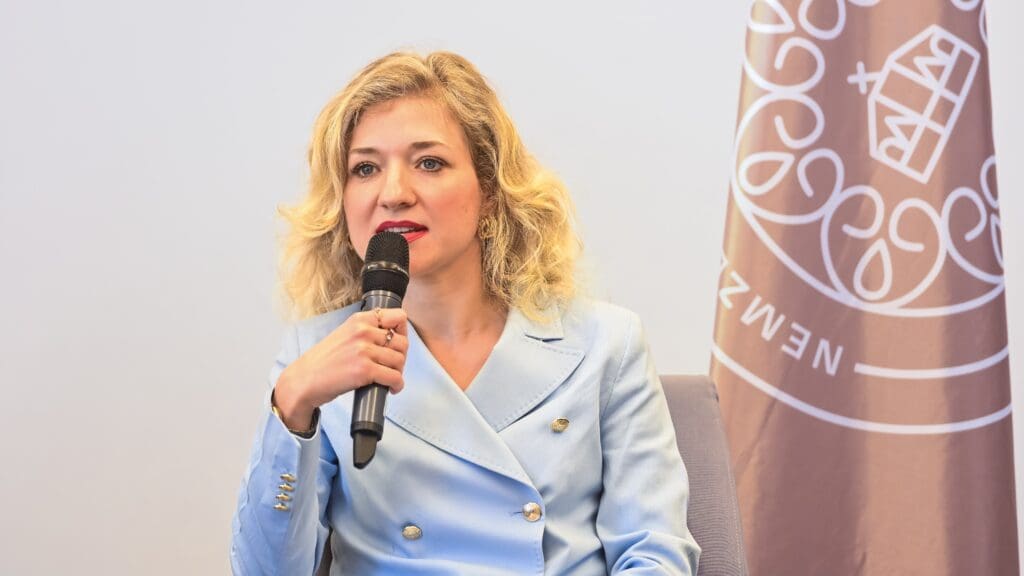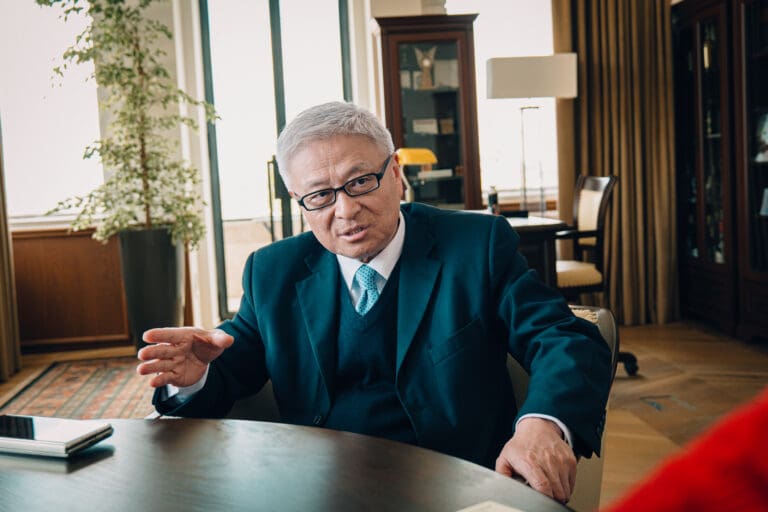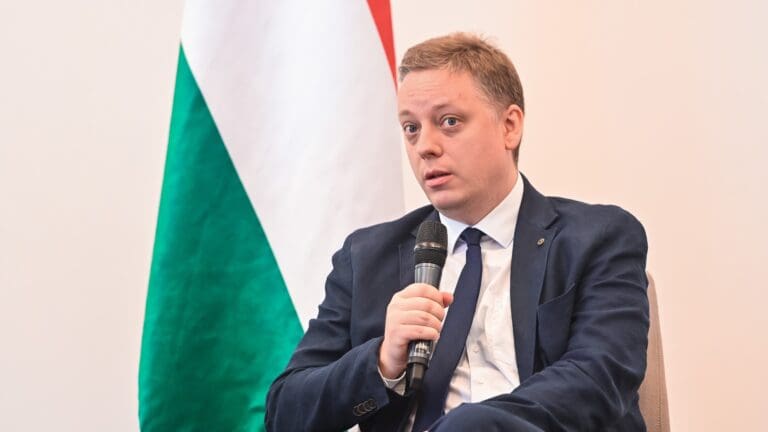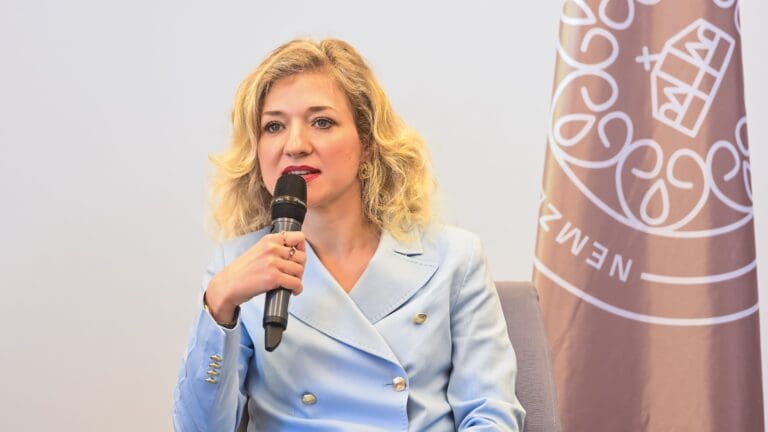Father Benedict Kiely is a Catholic priest. Born in London, and ordained in Canterbury, England in 1994, Father Ben has spent most of his priestly ministry in the United States. In the summer of 2014, Father Ben perceived a call to devote his entire priestly ministry to aid and advocacy for persecuted Christians, especially in the Middle East. As a founder of Nasarean.org, Father Ben divides his time between the US, UK and the Middle East, speaking, preaching and writing, focusing attention on the plight of persecuted Christians around the world.
It is heart-breaking that so many Christians have been driven out of the Middle East, including Iraq and Syria, the cradles of Christianity. How will this affect the future of Christianity, and do you think there is a chance that those Christians will return? And what about the Christians who remained there?
‘The Middle East, as you described it, the cradle of Christianity, imagine it with no baby in the cradle’
I think it will affect the future very badly, because Christians have always been considered what they call the leaven, you know, the yeast in the middle of society. They were often the middle classes, educated doctors, nurses, dentists, etc. and for all of them to go, that’s the first issue. The second issue is that they were often a kind of a bridge, a peacemaking bridge in these countries. The Middle East, as you described it, the cradle of Christianity, imagine it with no baby in the cradle. If they go, all of us who are Christians will have lost something huge. Whether they will return is a very difficult question. It’s my personal belief that in Iraq, the ones who have left will probably not come back. I think in Syria, where whatever your views of the regime in Syria, and obviously no one pretends it’s a good regime, the regime is winning, Christians do want to come back. I think Syrians seem to want to come back to the country more than elsewhere. And one of the things that Hungary Helps is doing, and also my little charity is doing, is trying to keep the Christians in place by supporting their education, access to jobs, so that they will not leave. That’s the only hope.
In recent years, Christians have emerged as the world’s most widely targeted faith group. How much can persecuted Christians rely on post-Christian Western societies? What is your experience?
Well, I think that’s a fairly short answer. They can’t rely on post-Christian societies at all. They can only rely on countries like Hungary, Poland, and other countries which are still claiming to be Christian for help. In theory, the United States posture did change from the Obama administration to the Trump administration. But now it’s all gone right back. All the aid, basically, that Christians were getting, is being directed towards other so-called minorities that many of us would not consider the kind of minorities that should get that kind of aid. So it’s really dependent on countries that claim to be Christian to do that, as I say, like Hungary and I think Poland. What I would encourage other countries to do is to imitate Hungary. As I said, in my talk (at the National Conservatism Conference), you are still having the only government ministry [dedicated to aiding persecuted Christians] in the world. It would be very necessary for others, say the Visegrád group and other countries, to imitate immediately.
Is there a chance that Christians will also become a persecuted community in Europe and in the West? The case of Pӓivi Rasanen in Finland is a warning sign.
I don’t know if you have the same phrase in Hungarian, but in English we talk about the canary in the coal mine. It’s about when the miners used to go into the coal mine, they would take a bird, a canary in a cage, and if the bird died, it meant there was toxic gas in the air. So, we may say that Pӓivi’s case has been the canary in the coal mine for Europe, if she’s found guilty. Everything that she said at the National Conservatism Conference is true. And we are seeing what is described now as soft persecution, the slow turning of Christians into second-class citizens. Certainly, for example, in many Western European countries and in America, there will be jobs like being a doctor or a nurse that a Christian will not be able to have because they will be forced to perform abortions or engage in other activities that they oppose on moral grounds. These are signs of persecution.
You have already alluded to this, but is there any specific European country or group that can be the leading Christian force in the West?
I believe Hungary and Poland have begun some sort of a dialogue and Poland is attempting to emulate Hungary and set up something similar to Hungary Helps
You know the answer. Yes, there is. I believe Hungary and Poland have begun some sort of a dialogue and Poland is attempting to emulate Hungary and set up something similar to Hungary Helps. But I think it’s very important that Hungary created a ministry secretariat, but also that it was elevated to the Prime Minister’s Office, because that shows how important it is for the government. It could easily be a sort of a sideline ministry, a show, but it’s very clear that it’s not a show for Hungary. And as I said, I think other countries, especially those who claim to be Christian, should emulate. What I also believe is important is that Hungary Helps is very practical, it is not just talking, it’s doing.
Do you think it also matters what we do as individuals?
Yes, it does. Many people tend to say well, the problem seems so bad, what can I do? I’m a nobody! First, you can pray. Prayer is powerful, and anyone can pray. You can also help in practical ways, for example by donating to or volunteering for charities, etc. And you can also advocate. If you’re a voter, you have the right to ask your Member of Parliament ‘what are you doing for Christians, how are you helping?’ So, there are very many practical things individuals can do, but what is also important is to raise the profile of persecuted communities in your church, by asking questions. Why are we not praying for Christians? Why are we not doing something? Why are we not moved by their plight? They must not be forgotten.


